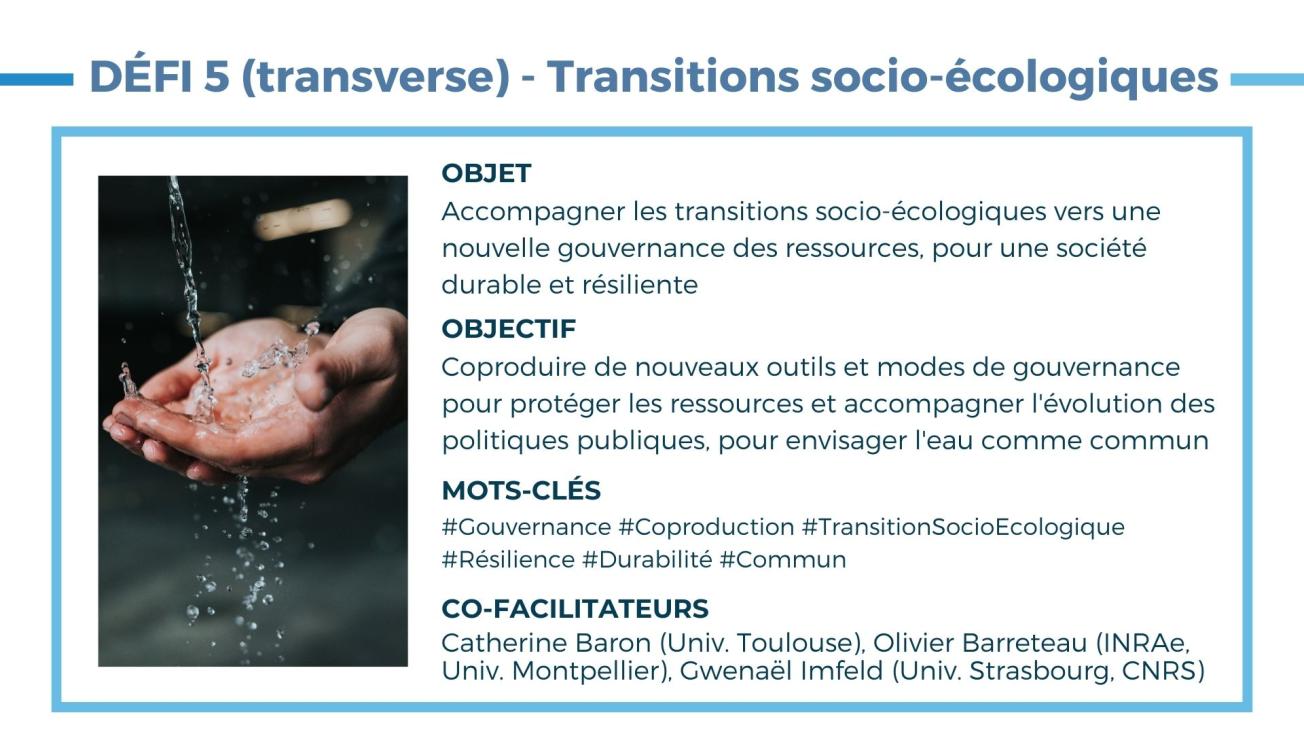Co-facilitators



Presentation
We need major socio-ecological transformation to secure the sustainability of social and hydrological systems and their governance. This implies a paradigm shift and the co-production of new governance approaches and tools to protect water, the environment and human societies. Challenge 5 will seek to lay the foundations for the emergence of original forms of water governance to meet the new demands. This means considering water, its uses, services and functions as part of a holistic, inter-basin, cross-border, inter-sector and comparative approach. Challenge 5 will:
1. Re-examine the principles that form the basis for co-producing original forms of adaptive governance of water as a common good and ensuring the viability of hydrosystems. This will mean reviewing the socio-ecological approaches to sustainable socio-hydrosystem management while extending the concept of common goods to human and non-human living organisms. Water governance methods will be identified and analysed, while governance principles and tools adapted to differing territories will be developed.
2. Facilitate the joint production of adaptation pathways for the viable and equitable development of socio-hydrosystems and the development of renewed public policies on water as a common good. This will involve a review of the principles underpinning the co-production of original forms of governance, the design of technical and institutional solutions, their adjustment and testing in a selection of areas, and the development of decision-support systems for robust pathways.

DÉFI 5 - Transitions socio-écologiques
© OneWater

